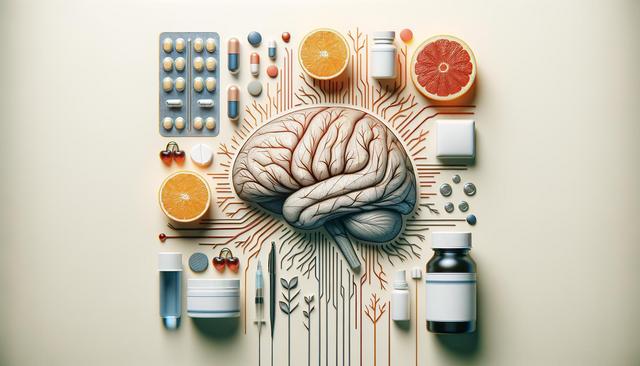Understanding the Importance of Early Detection
Kidney disease often progresses silently, with many individuals unaware of any issues until significant damage has occurred. Learning to identify the early signs of kidney disease is crucial for timely intervention. These early indicators may be subtle but should not be overlooked, especially for individuals with risk factors such as diabetes, high blood pressure, or a family history of kidney issues.
Common early signs of kidney disease include:
- Fatigue or unusual tiredness
- Swelling in the ankles, feet, or hands
- Changes in urination patterns (frequency, color, or foaminess)
- Persistent itching or dry skin
- Muscle cramps, especially at night
Recognizing these signs can enable individuals to seek medical evaluation before the condition worsens. For those concerned about how to protect your kidneys, understanding these symptoms is a foundational step in taking control of your health.
Lifestyle Factors That Influence Kidney Health
Several lifestyle choices can significantly influence kidney function, either positively or negatively. Addressing these aspects is a key part of learning how to protect your kidneys. Diet, hydration, physical activity, and avoiding harmful substances all contribute to maintaining healthy kidneys. People who wish to prevent kidney disease naturally should pay close attention to these daily habits.
Here are some practices that support kidney health:
- Staying well-hydrated with water
- Reducing sodium and processed foods
- Limiting alcohol and avoiding tobacco
- Engaging in regular moderate exercise
- Monitoring blood pressure and blood sugar levels
Making these adjustments not only reduces risk factors but also enhances overall wellness. Many individuals seeking the best diet for kidney health often benefit from plant-based meals, lower protein intake (when advised by a doctor), and minimizing phosphorus-rich foods.
Dietary Guidelines for Supporting Kidney Function
Nutrition plays a central role in kidney health, especially when aiming to prevent kidney disease naturally. A well-balanced, nutrient-rich diet can help reduce the strain on your kidneys and manage conditions like hypertension and diabetes that often lead to kidney damage. Following dietary recommendations tailored for kidney health can be a proactive way to preserve function and delay progression if any damage is already present.
Some dietary tips include:
- Incorporating fresh fruits and vegetables
- Choosing whole grains over refined products
- Limiting phosphorus and potassium-rich foods if advised
- Reducing red meat and opting for leaner protein sources
- Staying mindful of portion sizes and overall calorie intake
Those looking for the best diet for kidney health should consider consulting with a dietitian who specializes in renal nutrition. This ensures the plan balances all necessary nutrients without overloading the kidneys. Early dietary changes can make a substantial difference, especially for individuals already noticing early signs of kidney disease.
Monitoring and Medical Support
While lifestyle and diet are essential, medical evaluation and monitoring remain critical, particularly when signs of kidney issues appear. Blood and urine tests can detect abnormalities long before symptoms become severe. Regular checkups with a healthcare provider help track kidney function and make it easier to implement early interventions.
Important tests to monitor kidney health include:
- Glomerular filtration rate (GFR)
- Urine albumin-to-creatinine ratio (UACR)
- Blood pressure readings
- Blood glucose levels
For those seeking to prevent kidney disease naturally, combining routine testing with a healthy lifestyle is a comprehensive strategy. Knowing the kidney disease symptoms to watch for and acting early can significantly improve long-term outcomes. Medical professionals can also provide guidance on medications or supplements that support kidney function without causing harm.
Looking Ahead: Prevention Strategies for 2025
As we move into 2025, awareness and prevention will continue to play a vital role in reducing the burden of kidney disease. Public health initiatives, improved diagnostic tools, and increased education will empower more people to recognize early signs of kidney disease and take proactive steps. Emphasis on holistic well-being, rather than reactive treatment, is shaping the future of kidney care.
Prevention strategies to focus on in 2025 include:
- Using mobile health apps to track hydration, diet, and blood pressure
- Participating in community screening programs
- Staying informed about the latest research in kidney health
- Advocating for healthier food options in schools and workplaces
- Encouraging family discussions about medical history and risk factors
Incorporating these strategies into daily life can help individuals recognize signs of kidney issues early and take meaningful action. Whether you’re already managing a chronic condition or simply aiming to stay healthy, understanding the kidney disease symptoms to watch for and adopting protective habits will be more important than ever.
Conclusion: Taking Control of Kidney Health
Recognizing the early signs of kidney disease offers a powerful opportunity to make lifestyle changes that can protect long-term health. Whether you’re noticing subtle symptoms or seeking ways to prevent kidney disease naturally, taking action early is key. By staying informed, making thoughtful dietary choices, and engaging with healthcare providers, individuals can strengthen their kidney health and overall well-being. As 2025 approaches, embracing prevention strategies and being attentive to signs of kidney issues will empower more people to lead healthier, more informed lives.




Leave a Reply